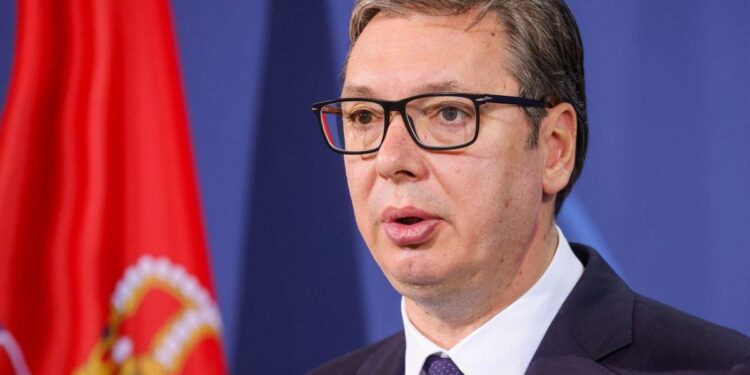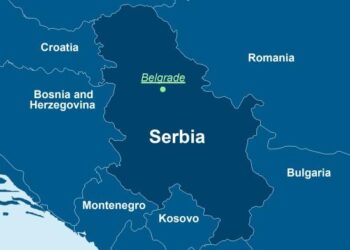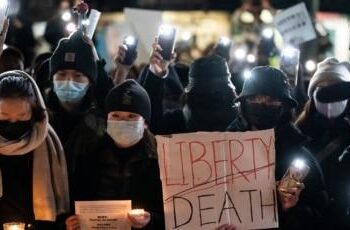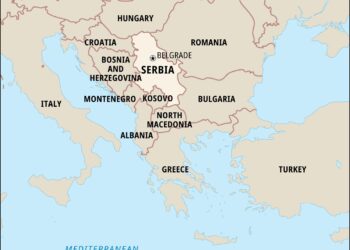Unexpected Return of Serbian President from the U.S.: Health Issues and Diplomatic Consequences
In an unexpected turn of events,Serbian President Aleksandar VuÄŤić has abruptly ended his official trip to the United States due to health concerns.His hospitalization during this visit prompted urgent medical intervention, raising significant questions about his health condition and its potential ramifications for Serbia’s diplomatic relations and international engagements. This incident not only highlights the critical nature of a leader’s health but also emphasizes the precarious balance that heads of state must maintain while representing their countries on a global stage.
President Vučić Returns to Duties Following Hospital Discharge Amid Global Concerns
Following his release from medical care, President Vučić has returned to Belgrade to continue fulfilling his duties amidst growing international worries regarding his health and its implications for regional stability. His sudden exit from an important diplomatic mission in the U.S.has sparked speculation about how this might influence future government policies. Recently,he has faced heightened scrutiny over both personal health issues and political tensions within the Balkans.
Upon resuming office, Vučić outlined several immediate priorities aimed at tackling Serbia’s pressing challenges:
- Economic Recovery: Initiatives focused on revitalizing the post-pandemic economy.
- Diplomatic Engagement: Strategies designed to strengthen relationships with neighboring nations.
- Public Health Improvements: Enhancing public health policies in response to ongoing global health threats.
An array of analysts suggests that both Vučić’s recovery process and his ability to address these urgent matters will be closely observed as they assess future governance trends in Serbia as well as its standing within Europe. Despite uncertainties looming ahead, government officials reaffirm their commitment to maintaining stability while pursuing goals related to European integration.
Impact of Sudden Hospitalization on Serbia-U.S. Relations
The recent hospitalization incident during a crucial diplomatic visit has raised concerns regarding the stability of Serbian-American relations. The unforeseen medical emergency not only truncated VuÄŤić’s trip but also left many questioning its effects on ongoing negotiations between both countries. Key areas likely impacted include:
- Trade Relations: Economic discussions may face delays due to this abrupt political shift.
- Security Partnerships: The security dynamics in the Balkans heavily depend on collaboration with the U.S., which could be affected by shifts in leadership focus or priorities.
- Civic Perception: This event may change how each nation views mutual commitments towards shared objectives.
Acknowledging these challenges,both governments have expressed intentions to keep communication channels open. The Serbian administration emphasizes continuing collaborative efforts initiated during this visit with particular focus on areas such as:
- Economic Resilience: Strengthening economic partnerships is vital for attracting American investments into Serbia.
- Cultural Exchange Programs: Promoting educational exchanges is essential for fostering goodwill between nations.
Health Protocols for Global Leaders During International Travel Resumption
As international travel resumes , it becomes increasingly important that leaders strictly adhere to established health protocols designed for ensuring safety across various global platforms . Given varying healthcare systems worldwide , compliance with thorough guidelines is essential . These recommendations may include:
- Vaccination Requirements: Full vaccination against COVID -19 is often mandated , along with necessary documentation upon entry .
- Pre-Trav el Testing: A negative PCR test conducted within 72 hours prior departure is advisable , minimizing transmission risks .
- Symptom Monitoring: Health screenings should occur upon arrival targeting any symptoms associated with infectious diseases.
- Compliance With Local Regulations: Adhering strictly host countries’ specific health policies including quarantine measures or mask mandates remains critical ./
Moreover , encouraging dialog among national healthcare agencies can enhance cooperative strategies effectively managing travel-related risks.Establishing centralized data repositories concerning global health conditions alongside region-specific guidelines supports informed decision-making processes.A proposed framework could involve :
/ p >Recommendations
<> Implementation Timeline < >
/
tr >/
tbody >/
tr >> Pre-Tr av el Health Briefing
/ td >> One Week Prior
/ td >/
tbody >/
tr >> Real-Time Health Status Updates
/td>> <> During Travel
/td>/
tbody >/
tr >> Post-Tr av el Health Assessment
/td>> <> One Week After Return
/td>/
tbody >
/
section
Concluding Thoughts
To sum up , Serbian President Aleksandar VuÄŤić ‘ s sudden return from an official engagement abroad underscores significant concerns surrounding both his personal well-being and ongoing diplomatic initiatives involving Serbia.The president ‘ s brief hospitalization was followed by confirmation that he is recuperating while resuming duties back home.This situation illustrates complexities inherent within international relations where leaders must navigate personal challenges alongside national interests.As developments unfold further scrutiny will likely focus upon how these events shape future foreign policy directions under Vući ć ’ s leadership.
ADVERTISEMENT - Pre-Trav el Testing: A negative PCR test conducted within 72 hours prior departure is advisable , minimizing transmission risks .
- Vaccination Requirements: Full vaccination against COVID -19 is often mandated , along with necessary documentation upon entry .














